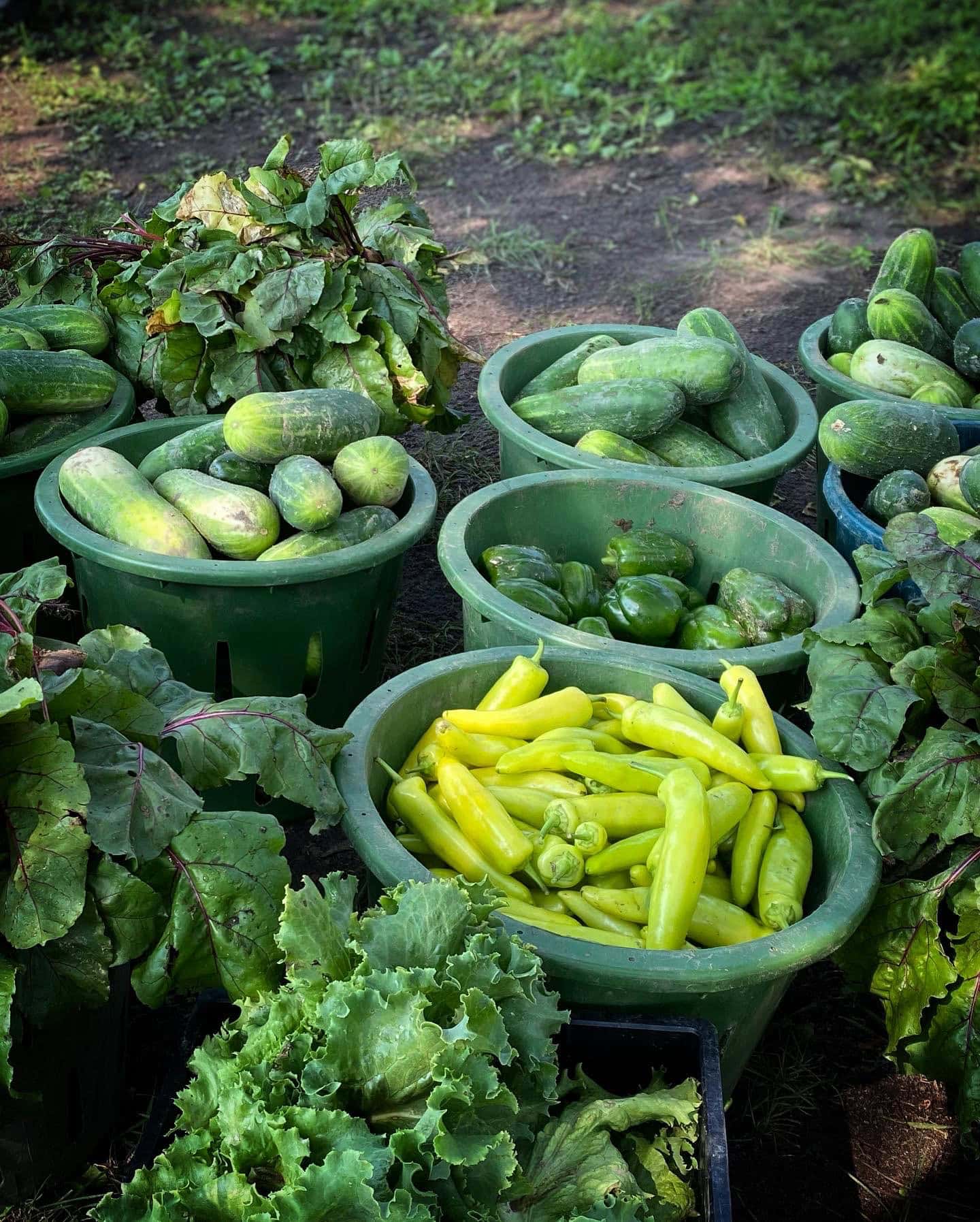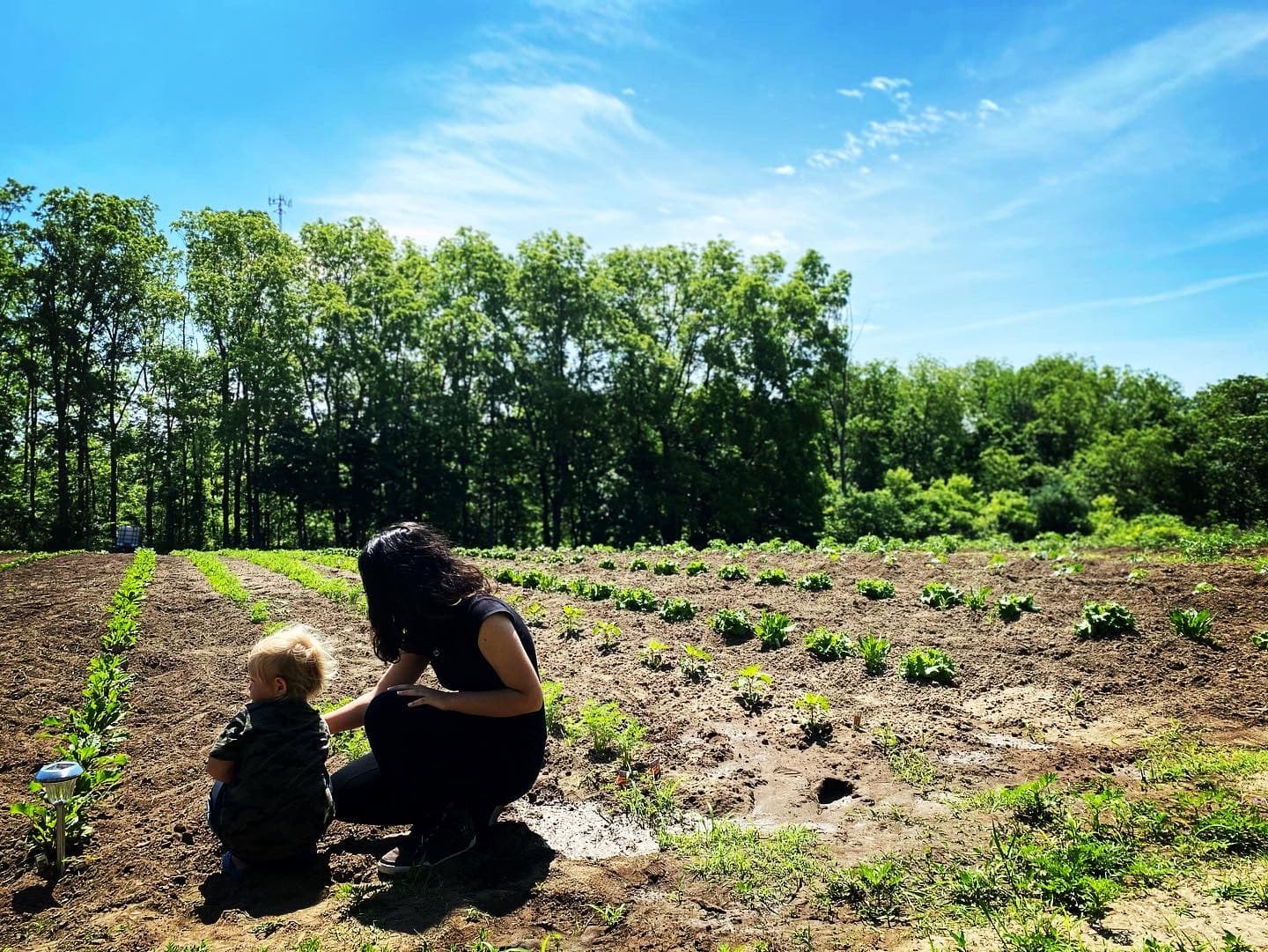TL;DR
Revitalizing Our Sustenance Project (ROSP) is an Indigenous youth-led program to help provide Indigenous and non-Indigenous youth opportunities to learn about the importance of sustainable agriculture practices while feeding our community! We strive to revitalize our relationships with food, community, and the land.
Details
In February 2022, our CREation Grants team sent out a Q&A form to 2021 Creation Grantees to capture their experiences creating and carrying out their projects. Today we are featuring responses from the Revitalizing Our Sustenance Project, led by youth leaders Denise Miller, Erin Hayward, Sonia Hill, Jessa Laight, and Samantha Miller from Six Nations of the Grand River Territory, Ontario.
Q: Tell us about your group and project.
A: Revitalizing Our Sustenance Project (ROSP) is an Indigenous youth led program to help provide Indigenous and non-Indigenous youth opportunities to learn about the importance of sustainable agriculture practices while feeding our community! We strive to revitalize our relationships to food, community, and the land.


Q: As the youth running the project, what impact do you hope it will have?
A: As the program and ROSP team grew, the community and land restoration needs became very evident over the summer months of 2021. As our project develops over time our long-term goals are:
- Land Restoration & Revitalizing Plant Life
- Seed Saving & Community Access to Seeds
- Community Food Access & Community Engagement in learning Sustainable Agriculture
- Awareness & Education surrounding Agriculture, Climate Change Effects, & Environmental Restoration
- Building Resources for Land-Based Learning and Awareness
Q: What is something you have learned?
A: I learned that sustainable agriculture and permaculture is a lot more than just growing food. We also need native species, plants, and healthier ecosystems to have wholesome food. In addition to more helping hands in operating community driven food initiatives. There is a huge gap within our Indigenous communities with food sovereignty and sustainability. A lack of interest in gardening has made it hard to sustain and maintain a garden. So, cultivating interest and motivation is just as important for a community garden as planting seeds.
“Sustainable agriculture and permaculture is a lot more than just growing food. We also need native species, plants, and healthier ecosystems to have wholesome food.”

Denise Miller from the Revitalizing Our Sustenance Project
Q: What is one piece of advice you would share with other youth who want to run a project?
A: The best advice I can give to a young person trying to make change within their community is that there will be obstacles, hard times, and the lack of support from older generations but it will be okay. As time goes on, with hard work and dedication, you will find the people needed to help your vision grow. Always be good to yourself and train your brain to say good things about yourself. You’re not alone in the process and people will always come to you, the ones that are meant to be part of the process.
“I support ROSP in that I have experienced first-hand the work done to enhance youth and community wellness. I began volunteering in the community garden in Six Nations, Ontario in August 2020 alongside youth from the community and other settler volunteers. We had the opportunity to pick, peel, and can vegetables from the community garden that would then be stored for use in the winter months by the Cayuga Longhouse. I saw younger youth having the opportunity to learn more about the land and traditional Haudenosaunee knowledge from older youth as well as some of the adults present.
This helped foster and strengthen ties with other community members, which enhanced ties to the overall community and its future seasonal needs as well. Furthermore, as a settler volunteer, I was grateful and appreciative to be invited into this space to learn more about traditional Haudenosaunee knowledge systems and connection to the land. The opportunity to connect with the Haudenosaunee community in this aspect has given me a new lens to view food sovereignty, environmental restoration, and global climate change and its impact on food systems.”


We are so proud of the heart work of our young relatives like Denise Miller, Erin Hayward, Sonia Hill, Jessa Laight, and Samantha Miller are doing across Turtle Island and are so lucky to be able to support them in their work.
Connect with the Revitalizing Our Sustenance Team
Follow them on Instagram: @revitalizingoursustenance